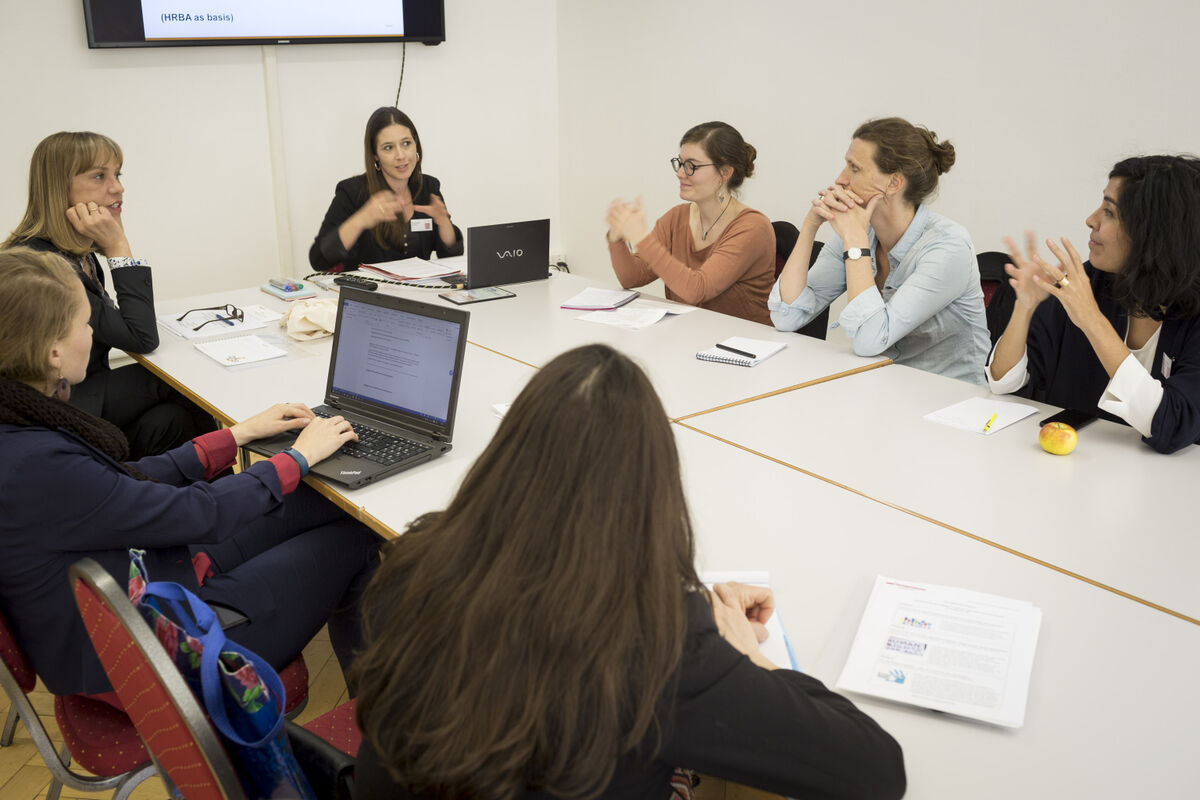- Austausch & Vernetzung
- Wissen & Lernen
- Advocacy
- Unsere Themen
Von Lea Hinnen
Local Non-Governmental Organizations often take the role of a service provider in order to cater the necessary protection and support for sexual and gender-based violence survivors. However, in order to push the responsibility taking and accountability of the governments for SGBV response, awareness raising, capacity building, advocacy and lobbying work has become an integral part of their agenda. While there are international organizations investing in professionalism in local organizations, there is no international support when it comes to influencing politics.

How should, however, a local NGO such as Vive Žene in Bosnia and Herzegovina manage the double sided drone of being a service provider for SGBV survivors, but also being in charge of doing advocacy and lobbying work at the same time? How can this work be done efficiently and durable?
While it often does not pose a very big challenge to get funds for specific projects, using a picture of a hungry child or a beaten woman, it is getting harder and harder to get funding for advocacy and lobbying activities and therefore for a human rights-based approach. With international donors pulling out of countries such as Bosnia and Herzegovina, local NGOs experience a serious lack of support in their lobbying and advocacy mechanisms in terms of financial capacity.
At the same time, Bosnia and Herzegovina, like so many other countries, theoretically have the human capacity, educated people that are qualified in the field of work of local NGOs such as Vive Žene and also in terms of advocacy and lobbying work. However, the NGOs lack, again, the financial capacity to pay a respectable salary for these professionals. Volunteer work is often no option, since hardly any of them could afford to work for free, and if the NGO can provide a base salary, international organizations such as the UN often seek local professionals and can offer them much better salary and a more secure long-term work engagement.
Jasna Zecevic from Vive Žene sees the main issue within the international support: “We do not find support on a synergy level: While there are international organizations investing in professionalism in local organizations, there is no international support when it comes to influencing politics. International organizations and donors want to enhance a human rights-based approach, but at the same time, they are pulling out of the country. We do not have any coalition with international NGOs, and this is the biggest challenge.”
To remain sustainable after so many years of providing services to SGBV survivors, Vive Žene has revised its strategy and redefined priorities, starting to cut down on activities and staff while identifying a “core without which Vive Žene wouldn’t survive”. Other NGOs, however, have to become institutionalized in order get the necessary funding by the state. For Jasna Zecevic, this would be a loss of identity for her organization, which she does not want to endure.
We don’t quite know, but the working group seems to be in agreement that it is a huge problem to apply a human rights-based approach for local NGOs since they simply lack the capacity. It could be an advantage to separate intervention (e.g. therapy) and advocacy, while both parts remain integral and important: The local NGOs should remain at the action level, the intervention (which would also help getting funding) and only then, the synergy level (e.g. UN) should support the action level.
In addition to that, local NGOs should become more integrated into the state system without becoming part of an institution. In the case of Vive Žene: While their opinion is highly valued by state institutions such as hospitals or courts, the state does not financially support the organization. Ideally, however, all services provided by Vive Žene should be covered by health insurance, hence paid for by the state, without Vive Žene having to become part of a state-institution and giving up their identity as a local organization.
While there is no single, right solution to overcome the many challenges of NGOs in such a multifaceted role, one key step is coalition building. With international NGOs having the responsibility to realize this development, them and local NGOs should sit down together, both aware of the new situation and challenges, and discuss a possible strategy in which the work of the local NGOs remains efficient, sustainable and durable while a human rights-based approach can be respected.